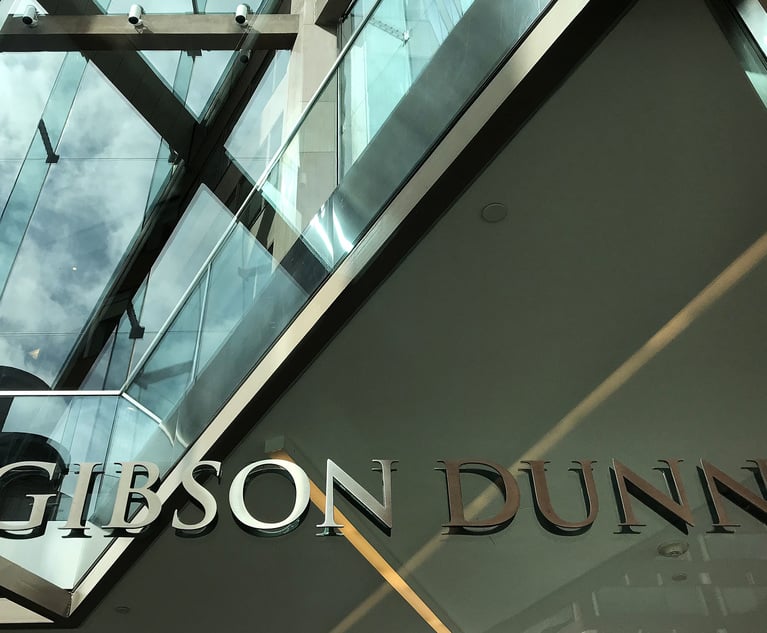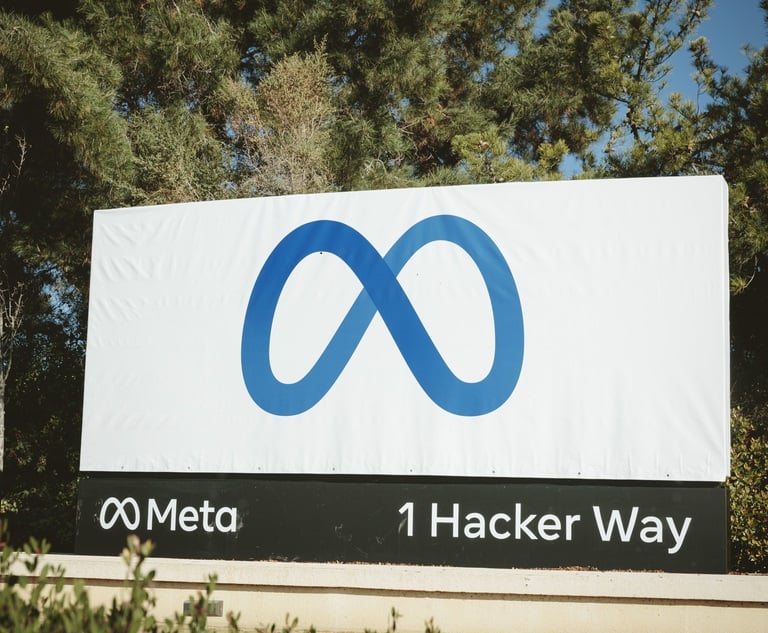GREATER EXPECTATIONS? - Earlier this week, we told you about how associate raises are rankling just about everybody who isn’t, you know, an associate. But while one young lawyer on Reddit recently described “going from making 190k to 215k without doing sh*t” as “the greatest stunt I have ever pulled,” the truth is that the gravy train may end up derailing for some associates. As Law.com’s Andrew Maloney reports, all that cash could come with consequences, including a lower margin of error in associate work. Michael Hammer, CEO of Dickinson Wright, noted that higher salaries often mean higher expectations, and firm leaders may consider tightening enforcement of quotas or yearly benchmarks if associates are getting more base pay anyway. “It does put more pressure on their performance, and we have less leeway to bonus them out when they fall short of the various performance metrics due to rising compensation,” he said. “The increased expense reduces the wiggle room.” But it should also be noted that the pay bumps could backfire on the firms as well, especially if clients, faced with aggressive rate hikes, begin seeking out cheaper legal advice for some matters.
PANDEMIC PIVOT PLANS - It’s become clear that, when it comes to keeping the courts moving during a global pandemic, coping with a highly adaptable virus is going require highly adaptable legal professionals. As Law.com’s Alaina Lancaster writes in this week’s Law.com Barometer newsletter, trial delays and reduced court operations continue to frustrate judges, attorneys and clients nationwide. But some litigators have begun creating new approaches to deal with the long-term uncertainties of the global health crisis, resigning themselves to the fact that constant upheaval is just part of the gig now. Betsy Miller, a Cohen Milstein Sellers & Toll partner in Washington, D.C., for example, has transitioned from reviewing her case strategy every six months to recalibrating every few weeks. “I treated the situation like a science experiment: creating hypotheses and testing different approaches in response to new variables. I minimized blind spots by not becoming attached to the status quo,” Miller said. To receive the Law.com Barometer directly to your inbox each week, click here.
WHO GOT THE WORK?℠ - Eric Leon, Robert C. Collins III and Marc S. Werner from Latham & Watkins have stepped in to defend Carvana, an online used car seller known for its car vending machines, in a pending consumer class action lawsuit. The complaint, filed Dec. 9 in Pennsylvania Eastern District Court by the Consumer Law Center and the Law Offices of Robert P. Cocco, accuses Carvana of delaying car title transfers, causing customers to be unable to drive cars they have purchased legally. The case, assigned to U.S. District Judge Edward G. Smith, is 5:21-cv-05400, Jennings et al v. Carvana LLC. Read the complaint on Law.com Radar and check out this week’s Who Got the Work?℠ column to find out which law firms and lawyers are being brought in to handle key cases and close major deals for their clients.
MASKLESS IN MIAMI - The University of Miami and other defendants were sued Thursday in Florida Southern District Court over alleged employment discrimination. The suit was filed by attorney James A. Boatman on behalf of former Residential Life Night Director Anthony Thomas, who contends that he was wrongfully terminated, in violation of his sincerely held religious beliefs, after he refused to wear a face covering to combat the spread of COVID-19. According to the complaint, Thomas believes masks and vaccines are “an affront to God.” “To summarize, true believers in God, such as Mr. Thomas, do not fear disease because God has created us healthy and free from disease, and if disease comes upon us, believers rely upon God for healing,” the complaint says. Counsel have not yet appeared for the defendants. The case is 1:22-cv-20296, Thomas v. University Of Miami et al. Stay up on the latest deals and litigation with the new Law.com Radar.
EDITOR’S PICKS
You Might Like

Trending Stories
-
Featured Firms
Law Offices of Gary Martin Hays & Associates P.C.75 Ponce De Leon Ave NE Ste 101Atlanta, GA 30308(470) 294-1674www.garymartinhays.comLaw Offices of Mark E. Salomone2 Oliver St #608Boston, MA 02109(857) 444-6468www.marksalomone.comSmith & Hassler1225 N Loop W #525Houston, TX 77008(713) 739-1250www.smithandhassler.comPresented by BigVoodoo
More From ALM
View Now
View Now
View Now
Dubai
Law firms & in-house legal departments with a presence in the middle east celebrate outstanding achievement within the profession.
Learn More
Aurora, CO
The premier educational and networking event for employee benefits brokers and agents.
Learn More
Philadelphia, PA
The Legal Intelligencer honors lawyers leaving a mark on the legal community in Pennsylvania and Delaware.
Learn More
A large and well-established Tampa company is seeking a contracts administrator to support the company's in-house attorney and manage a wide...
Apply Now ›
We are seeking an attorney to join our commercial finance practice in either our Stamford, Hartford or New Haven offices. Candidates should ...
Apply Now ›
We are seeking an attorney to join our corporate and transactional practice. Candidates should have a minimum of 8 years of general corporat...
Apply Now ›
Connecticut Law Tribune
MELICK & PORTER, LLP PROMOTES CONNECTICUT PARTNERS HOLLY ROGERS, STEVEN BANKS, and ALEXANDER AHRENS
View Announcement ›









